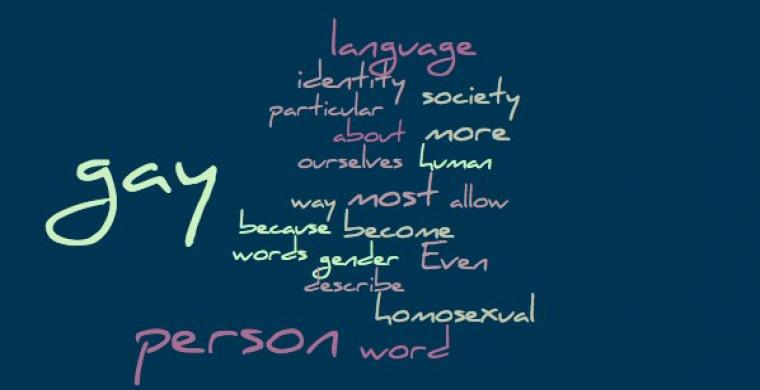There are no ‘gay’ people
BY BERNARD TOUTOUNJI
http://www.mercatornet.com
June 26, 2014
The words ‘hashtag’, ‘selfie’ and ‘tweep’ were among 150 new words added to the Merriam-Webster's dictionary this year; and with selfies being taken by everyone from Barack Obama to Pope Francis to Kim Kardashian, it’s little wonder this word is among those making the list.
While the evolution of language has, with technology, become all the more rapid, language remains one of the most vital tools underpinning a society. It is language that shapes reality for the members of a society, allowing us to attach meanings to things. Words convey reality and the better a language is used, the more precisely concepts can be understood. Inversely, the poor use of language can misinform a person or a whole society, about a particular truth.
Enter the word ‘gay’. Originating in 12th century England the original meaning was ‘joyful’ or ‘carefree’. By the end of the 20th century, the word gay became the recommended and preferred term for persons experiencing homosexual feelings.
While I am not losing sleep that a word once meaning joy has become the key identifier around homosexual actions, what does concern me greatly is the usage of the word gay in direct reference to a person. “My friend is gay” or “He was born gay” are two of the most common examples. Even in talking to people who consider homosexual actions wrong, (and note that judging objective moral action is always different to the subjective judgment of an individual person), they will still refer to a particular ‘gay’ person as if that term is completely descriptive.
In fact, this usage has become so normalised that the nuance is not often understood, so allow me to be more specific.
At the most fundamental level a human person is just that, a person, and our personhood is lived out as a male or a female. These realities of personhood are not accidents or awards bestowed upon us. They are more identifying than stating we are a plumber, an athlete or a teacher. They describe us in a most intimate way because they describe our bodies which are the sign of who we are. We are born as human persons, nothing more and nothing less.
What some segments of society have sought to do though, is to erase this most fundamental identity and instead provide a host of ‘genders’ for us to choose from, (for example Facebook recently listed 56 categories of gender). Even though it may sound freeing to be able to describe yourself as bi-gender, pan-gender or gender fluid, it is in fact the opposite because we pin our identity to something that is not the most underlying description of who we are. ‘Gender’ has become the way we feel about ourselves - or have been pressured into feeling about ourselves - at a particular point in time for a myriad of reasons.
To refer to a person, any person, as ‘gay’ or ‘homosexual’, (or even as ‘straight’) does a great injustice to who they are. When we do it we allow ourselves to fall into the push of a movement which seeks to minimise our basic human identity. We can say that a person has a ‘same-sex attraction’ because that is fundamentally different to saying that a person is ‘gay’. The sexual issues that a person may deal with are not issues that we should allow to dominate who they are; true companionship must be deeper than that. Even if a person declares apparent pride in their ‘sexual identity’ as ‘gay’, ‘lesbian’, ‘transgender’ etc., we need to uphold their innate dignity in the way we use our language.
There is perhaps no better summary than this passage taken from a document released in 1986 by the Vatican’s Congregation for the Doctrine of the Faith entitled On the Pastoral Care of Homosexual Persons.
“The human person, made in the image and likeness of God, can hardly be adequately described by a reductionist reference to his or her sexual orientation. Every one living on the face of the earth has personal problems and difficulties, but challenges to growth, strengths, talents and gifts as well. Today, the Church provides a badly needed context for the care of the human person when she refuses to consider the person as a "heterosexual" or a "homosexual" and insists that every person has a fundamental Identity: the creature of God, and by grace, his child and heir to eternal life.”
Bernard Toutounji blogs at Foolish Wisdom. This article has been republished with permission.














